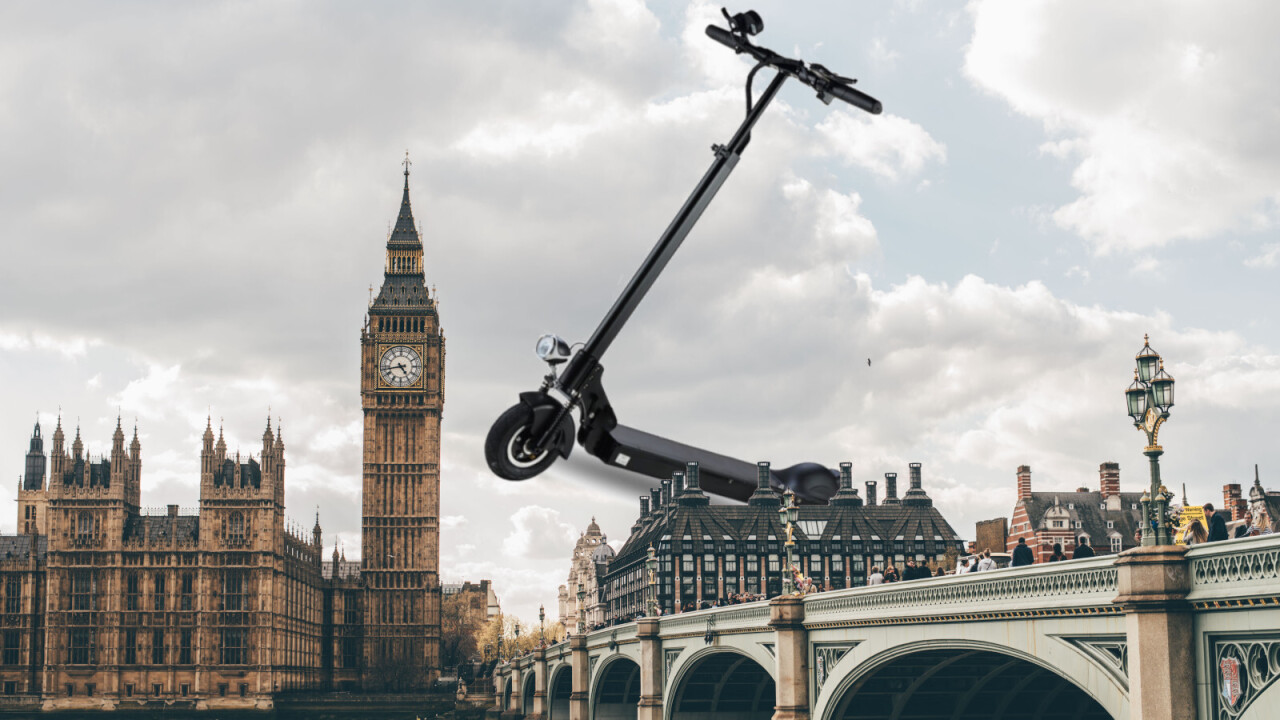
Yesterday, Transport for London announced plans for an escooter trial next year that will be the UK’s biggest since it began exploring the mobility tech earlier this year.
Let’s take a look at what’s going on.
Thankfully, the roads of the English capital aren’t going to be immediately overrun by the two-wheeled electric ride-on scooters. It seems that TfL has seen what has happened in the rest of the country and is taking a slightly more considered approach.
Here’s how it’s going to happen, at a glance:
- The first step is to find suitable escooter operators and complete the tender process.
- There will be three escooter operators by the time the trial launches.
- The tender process is open to all escooter operators and is being badged as a “competition.”
So what does an escooter company need to do, to be successful in this competitive tender process?
- Operators must provide data to TfL to help the authority understand how the escooters are being used across London.
- They must also follow strict safety requirements, which include speed restrictions and geo-fencing features.
- They will have to find ways to ensure their scooters aren’t used in “no-go areas” and follow speed limits in “go slow areas.”
Ok, so what’s the trial actually going to look like?
- Escooters will have a maximum speed of 15 mph, and can be used on roads and cycle lanes.
- In “go-slow” areas escooters will be restricted to a max speed of 8mph.
- In “no-go areas” escooters will stop working and come to a steady and safe stop.
- The number of scooters hasn’t been decided yet.
- TfL expects to start by rolling out between 60 and 150 devices per borough.
- According to the Evening Standard, a third of London’s 33 boroughs are looking to take part in trial.
- Escooter operators that can demonstrate safety and compliance will be allowed to expand their fleet.
- Riding escooters on pavements and riding privately owned devices continues to be illegal.
It certainly seems that TfL’s trial is making safety a key focus of the trial. That’s not entirely surprising given that smaller trials happening across other parts of England have been marred by misuse and safety concerns.
[Read: Neural’s market outlook for artificial intelligence in 2021 and beyond]
“Safety will be our number one priority during this e-scooter rental trial, which will be critical to providing us the data and insights we need to determine whether e-scooters are a viable part of a greener and healthier future for London,” said Michael Hurwitz, TfL’s Director of Transport Innovation.
One trial, that was expedited to provide socially distanced transport options during lockdown, has since had to be put on hold. The reason: escooter riders used the devices on a motorway. If geo-fencing had been used, this could have been prevented, so hopefully we won’t see situations like this happening in London.
Bird, Lime, Voi, and Dott are all vying to be selected by TfL to participate in the trial.
“The trial has the potential to be the most ambitious COVID-19 recovery scheme in Europe and we commend TfL, London Councils, and the individual participating boroughs for coming together to deliver this vision,” Dott’s UK territory manager, Duncan Robertson, told SHIFT in an email.
“We are also very supportive of the high bar for safety and scooter quality set by TfL,” he added.
Indeed, Swedish escooter firm Voi is also keen to support the emphasis on safety, and hopes its experience of running schemes across Europe can help.
The company’s CEO Fredrik Hjelm said “London will need an operator with strong experience… Operating in more than 50 European cities we know how important it is to create bespoke solutions for each one of them and we share the same commitment to safety.”
There’s a long way to go before escooters will hit the streets of London, though. We must always remain mindful that even with compliant operators and legislation in place, people may still find ways to misuse the devices, and I’d put money on at least a handful finding their way into the Thames.
Sources: Transport for London, Evening Standard, Pocket Lint
Update, November 18, 1031UTC: Added commentary from escooter operators. Note: Dott is a resident of a TNW Space in Amsterdam, it has no influence over our editorial output.

Get the TNW newsletter
Get the most important tech news in your inbox each week.




